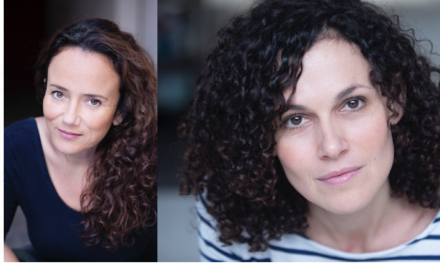The Icelandic theatre season is about to come out of hibernation, where theatres close for the summer, and gradually reopen in September. Traditionally, the professional theatre season runs from September to June, with a few exceptions, and is mostly centered in Reykjavík, the capital, but also represented in Akureyri in the north. And like Iceland, with a population of 330,000, the performing arts scene is small, very small. However, the audience attendance numbers are staggering and possibly unique globally. In the 2013 – 2014 theatre season Statistics Iceland calculated that more than 270,000 people attended a professional theatre performance, and that number sky-rockets if amateur productions are included.
The country has seen a massive rise in theatre attendance during the 20th century, a feat considering actors were only semi-professional until the 1950s and purpose-built theatres were almost non-existent. The foundation for The National Theatre of Iceland, designed by legendary architect Gudjon Samuelsson, was completed in 1929 but it would take almost twenty years to complete, interrupted by a global financial crisis and the Second World War. It finally opened in April 1950 catering to a population of 150,000 and has mostly stayed as a repertory theatre since. The purpose and goals of The National Theatre are enshrined in Icelandic law but the institution has to face and attempt to answer the following fundamental questions: What role should the national theatre play and, by extension, what is the role of theatre itself?
The Elf Palace
These questions resurface regularly in various forms; casual discussion, online comments, government meetings when arts funding is being discussed, in criticism and even on the stage itself. In April this year, they were brought to the forefront with force via The Elf Palace directed by Thorleifur Orn Arnarsson, its name derived from the inspiration the theatre’s architect. The Elf Palace’s cornerstone questions were, as stated in the program: “Is theatre the last communal gathering place during the age of internet communication and smartphones?” And, “Is theatre a place where society’s ailments can be mended?”

Actors recreate a scene from Independent People by Halldor Laxness. Photo by Hordur Sveinsson
Thorleifur made his name in Germany and Switzerland helming controversial and daring productions of classic plays such as William Shakespeare’s King Lear and Bertold Brecht’s The Threepenny Opera. Initially, it was announced that Thorleifur would direct a stage adaptation of Timur Vermes’ Look Who’s Back, a German satirical novel about what would happen if Adolf Hitler would return to modern-day Berlin. However, as the director stated publicly, the US presidential election changed his mind as he felt putting the focus on Adolf Hitler would be the absolute wrong step, the world was more in need of proactive dialogue. The production was binned and a new play was created from the ground up with the help of the creative team and cast already assembled, with the blessing from Ari Matthiasson, the artistic director of the National Theatre.
Although an ensemble production, where both the creative team and cast contributed to the final product, playwright Jon Atli Jonasson and director Thorleifur were credited for the script. It was a mixed bag of history, Icelandic theatre nostalgia, satire, biting social criticism and performance art encased in a post-dramatic frame. A varied critical response greeted The Elf Palace with critics either dismissing the production as self-indulgent navel-gazing mess or praised the production as an innovative and rapid response to current events in Iceland with its tongue firmly in cheek. It did not prove to be a hit with the audience either as its run was limited as it never found the audience or the discussion platform it was aiming for. But hard-line political theatre seems to be on the rise on the Icelandic stage and The Elf Palace is poised to be a turning point.
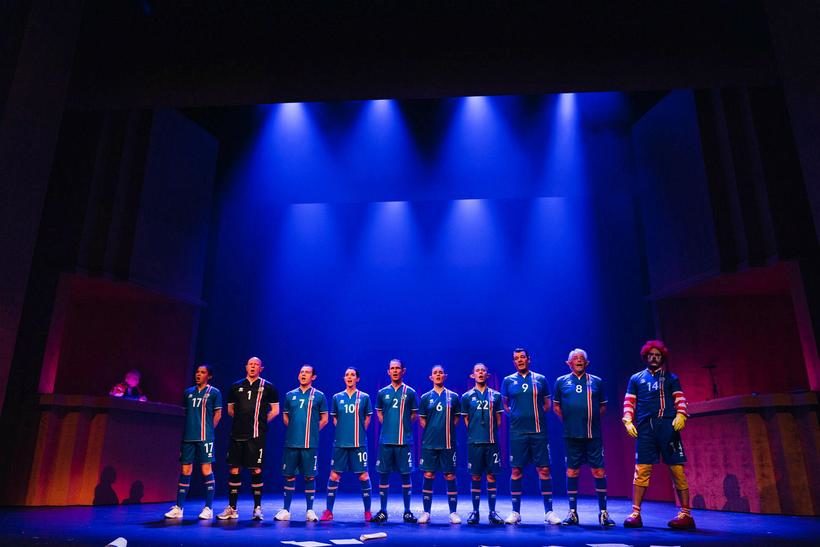
The Viking Clap recreated. Photo by Hordur Sveinsson
Looking Towards The Future
As the new theatre season looms the theatres have recently announced their full seasons and the first premieres are currently in final rehearsals. At first glance politics, both personal and communal, will play a large role with George Orwell’s 1984, Henrik Ibsen’s Enemy of the People and John Patrick Shanley’s Doubt all featuring. However, Thorleifur looks to be taking the center stage again with the premiere of a new ‘rock opera’ called God Bless Iceland at The Reykjavik City Theatre. The production’s source material is the independent inquest into the causes and effects of the Icelandic financial crash in 2008 and its title referencing the final lines of an infamous televised speech made in the wake of the country’s financial devastation by then Prime Minister, Geir Haarde.
On the face of it, Iceland recovered in an almost miraculous manner from the crash but Icelandic memory is short. After the initial fury of the Icelandic public and political upheaval in the following years, the warning signs have returned: The political pendulum has again swung to the right, banks are as powerful as ever, and the living cost has never been higher for the general public. The Elf Palace might have landed on deaf ears this spring but it might actually prove to have been a start of a small theatrical revolution. The question is whether the Icelandic nation will listen this time around.
This post was written by the author in their personal capacity.The opinions expressed in this article are the author’s own and do not reflect the view of The Theatre Times, their staff or collaborators.
This post was written by Sigríður Jónsdóttir.
The views expressed here belong to the author and do not necessarily reflect our views and opinions.

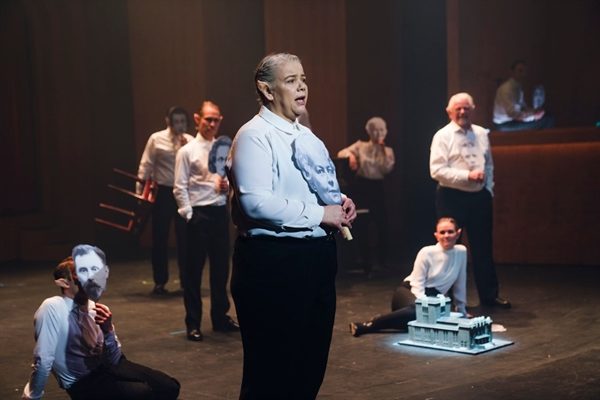
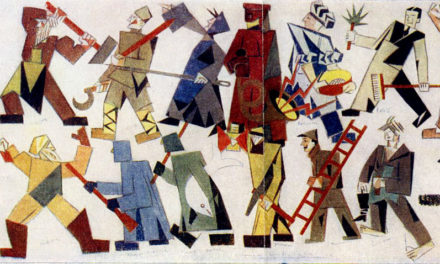
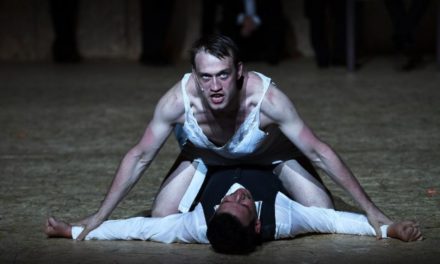
![Samuel Gallet’s “Mephisto [A Rhapsody]” at the Gate Theatre](https://thetheatretimes.com/wp-content/uploads/2019/10/image-1-440x264.jpg)
